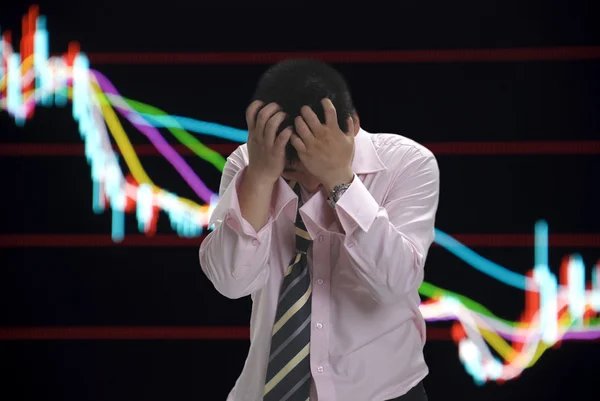In the high-stakes world of Forex trading, success is often attributed to one’s knowledge of the market, the ability to analyze economic indicators, and the implementation of robust trading strategies. However, the often-overlooked factor that can make or break a trader is psychology. The role of psychology in Forex trading is paramount, as it can influence decision-making, risk management, and ultimately, profitability. In this article, we delve into the various psychological factors that play a crucial role in trading success, from understanding the trader’s mind to mastering the mindset for market triumph.
Understanding the Trader’s Mind

The trader’s mind is a complex landscape of thoughts, emotions, and behavioral patterns. It is where rational analysis meets the innate human responses to risk and reward. To understand the trader’s mind, one must acknowledge that traders are subject to cognitive biases—systematic errors in thinking that affect decisions and judgments. These biases include:
- Overconfidence, leading traders to take on too much risk.
- Confirmation bias, which is the tendency to search for or interpret information in a way that confirms one’s preconceptions.
- Loss aversion, where the fear of losses leads to poor decision-making.
Traders must also contend with the illusion of control, believing they can influence outcomes that are often determined by uncontrollable market forces. Emotional self-awareness is the cornerstone of understanding the trader’s mind, as it allows traders to recognize their own psychological makeup and its influence on their trading behavior.
Psychological Pitfalls in Trading

Forex trading can be fraught with psychological pitfalls that can derail even the most experienced traders. The high leverage often used in Forex can amplify both gains and losses, intensifying emotional responses. Some of the common psychological pitfalls include:
- Revenge trading, where traders try to recover losses quickly by taking impulsive and uncalculated risks.
- Fear of missing out (FOMO), which can lead to hastily entering trades without proper analysis.
- Paralysis by analysis, where traders become overwhelmed by too much information and fail to act.
These pitfalls often stem from a lack of psychological preparedness and the absence of a disciplined trading plan. Recognizing these traps is the first step towards avoiding them, and is imperative for maintaining psychological equilibrium in the volatile trading environment.
The Impact of Emotions on Forex

Emotions can have a profound impact on Forex trading, with the potential to both positively and negatively affect performance. The rapid pace and constant fluctuations of the Forex market can trigger a wide range of emotional responses. Among these, fear and greed are the most dominant and have the following effects:
- Fear can result in premature selling or an inability to execute trades, leading to missed opportunities or realized losses.
- Greed can drive traders to overlook risk management principles, aiming for unsustainable gains.
The key to managing emotions in Forex lies in developing a healthy attitude towards risk and cultivating emotional resilience. Traders must strive to keep emotions in check by adhering to their trading plans and avoiding impulsive reactions to market movements.
Strategies for Mental Discipline

To achieve success in Forex trading, one must practice mental discipline. This involves adhering to a set of principles and strategies to maintain psychological fortitude:
- Set realistic goals and expectations to avoid unnecessary pressure and disappointment.
- Develop and stick to a well-defined trading plan to provide structure and reduce emotional decision-making.
- Keep a trading journal to monitor emotional triggers and patterns in decision-making.
Mental discipline also entails understanding and accepting the probabilistic nature of Forex trading. Losses are inevitable, but with mental discipline, traders can focus on the process rather than the outcomes, and consistently apply their strategy over time.
The Trader’s Psychology Toolkit

Having a psychology toolkit is essential for navigating the treacherous waters of Forex trading. The toolkit should contain:
- Stress management techniques, such as mindfulness and deep breathing exercises, to maintain a calm demeanor.
- Positive affirmation and visualization practices to build confidence and mental endurance.
- Continuous learning and self-reflection to improve both trading skills and psychological resilience.
The toolkit should also include risk management strategies, as controlling risk is often more psychologically sustainable than aiming for high returns. A successful trader’s toolkit will be personalized and evolve over time, reflecting the unique psychological profile and experiences of the trader.
Mastering Mindset for Market Success

Mastering the mindset for market success requires a blend of self-knowledge, discipline, and adaptability. Traders who succeed in the Forex market typically:
- Understand their strengths and weaknesses and tailor their trading strategies accordingly.
- Remain flexible and are able to adjust their approach in response to changing market conditions.
- Maintain a level-headed perspective, avoiding the emotional highs and lows that come with wins and losses.
Comparison Table: Emotional Responses and Their Market Consequences
| Emotion | Potential Positive Impact | Potential Negative Impact |
|---|---|---|
| Fear | Encourages caution and risk awareness | Leads to missed opportunities and inaction |
| Greed | Drives ambition and the pursuit of profit | Ignites risk-taking beyond one’s limits |
| Confidence | Fosters decisive action and adherence to strategy | Can result in overtrading and disregarding warning signs |
| Doubt | Prompts double-checking and due diligence | Causes paralysis by analysis and lack of conviction |
By understanding and managing their psychological responses to the market, traders can position themselves for greater success.
Psychology plays an indispensable role in the world of Forex trading, where mental fortitude is as critical as market knowledge. Understanding the trader’s mind, recognizing psychological pitfalls, managing emotions, and implementing strategies for mental discipline are all essential components of a trader’s psychological toolkit. Mastering the mindset for market success is not an overnight achievement but rather a continuous process of self-improvement and adaptation. By acknowledging and harnessing the power of psychology, traders can enhance their decision-making abilities, risk management, and ultimately, their trading performance.


